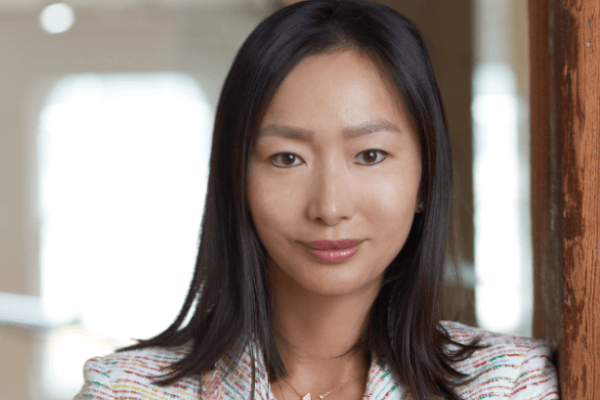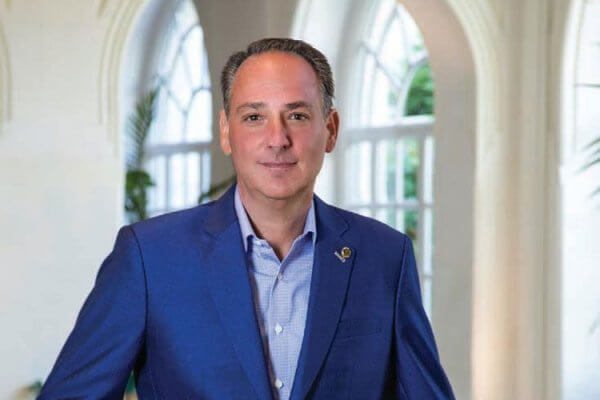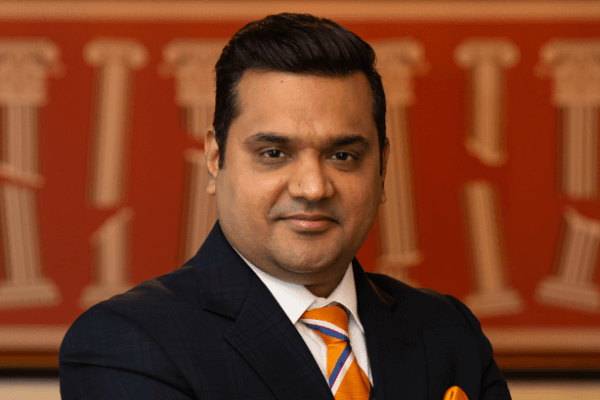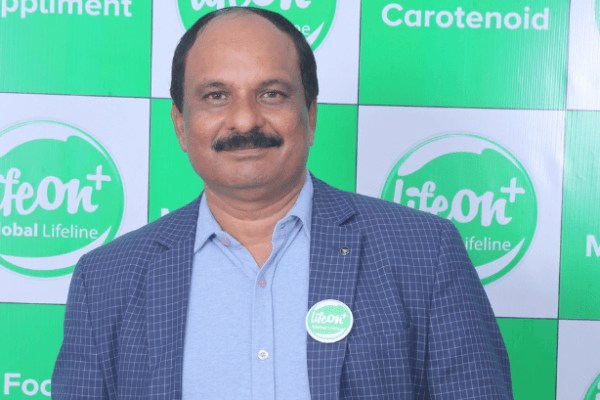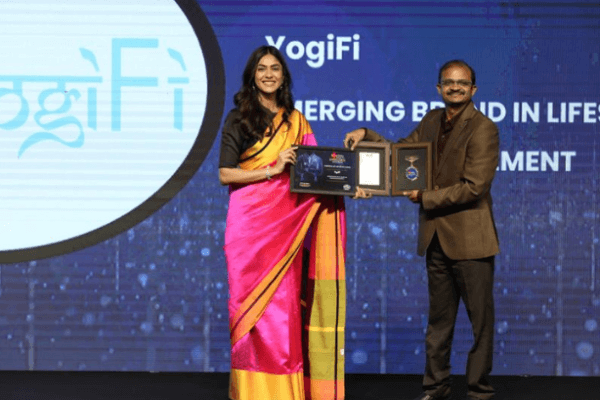- 15 Global Companies Launch Trusted Tech Alliance for Secure Digital Infrastructure
- Singapore Management University Launches Business AI Master’s Programme
- Cochin Shipyard Seeks Global Partners to Expand International Ship Repair Footprint
- OpenText Names Former IBM Americas President Ayman Antoun as CEO
- Fintech Company Network International Appoints Ashish Jain as Group CFO
Featured Profiles
Jessica Hoppe is the President and CEO of The World, Residences at Sea, the largest privately owned residential mega yacht. Her journey with The World began in 2022 as General Counsel and Vice President of Strategic Alignment, followed by key leadership roles before her appointment as CEO in June 2024. In this candid conversation, Jessica shares her journey from legal advisor to industry leader and her leadership philosophy rooted in context, humility, and adaptability. She reflects on how curiosity has shaped her career and provides valuable lessons for aspiring leaders on embracing challenges as opportunities for growth.
- What initially drew you to this industry, and when did you realize it was your passion?
My introduction to the industry came when an affiliate company acquired a luxury cruise line. Stepping onto a cruise for the first time, I was immediately drawn in—not just by the vessel’s beauty but by the experience itself. There is something remarkable about traveling the world while feeling entirely at home, where every detail is designed to elevate the journey, and every destination brings a new perspective.
What makes The World truly special is that it’s more than a luxury travel experience—it’s a home, a global community unlike any other. That distinction resonated deeply with me. It’s not just about visiting new places; it’s about forging meaningful connections and embracing a way of life that blends exploration with a true sense of belonging. That realization deepened my passion for this industry and continues to inspire me every day.
- What were the key turning points or milestones as you progressed in your career?
My background as a lawyer initially gave me a deep understanding of how the business operated, allowing me to analyze challenges, mitigate risks, and support decision-making. While my role was to provide legal guidance, I found myself increasingly drawn to the bigger picture—the strategy, the operations, and the long-term vision that drove the company forward.
The more I worked alongside business leaders, the more I realized that I didn’t just want to advise from the sidelines; I wanted to be directly involved in shaping the company’s future. I wanted to understand not just the “how” of decisions but the “why” behind them. That shift in perspective was a turning point in my career, one that led me to step beyond the legal realm and take on a more strategic leadership role. Looking back, that decision was pivotal, setting me on the path to where I am today.
- Can you tell us what sets The World apart from other cruises?
Launched in 2002, The World is the largest private residential yacht at 644 feet, offering an unmatched blend of luxury, exploration, and home-like comfort. Unlike traditional cruise ships, it features just 165 fully customizable residences—ranging from studios to three-bedroom homes—owned by a select community of ultra-high-net-worth individuals who share a passion for adventure and cultural discovery.
Residents treat their onboard spaces as true homes, leaving behind personal belongings like art, wardrobes, and wine collections, eliminating the need to pack. Ownership options include full deeds or 50% partnerships, with prices ranging from $2.5 million to $15 million.
Sailing year-round, The World continuously circumnavigates the globe, with residents collectively shaping its itinerary—whether exploring the Mediterranean or navigating Antarctic icefields. Beyond its dynamic voyages, it offers expert-led Expeditions to remote destinations like the Arctic and Papua New Guinea, blending luxury with discovery.
Onboard, residents enjoy world-class amenities, from Michelin-level dining and a 12,000-bottle wine cellar to a spa and golf simulators—all while waking up to a new horizon each day. For its residents, The World isn’t just travel—it’s a lifetime of curated adventure, where every journey begins at home.
- How has your leadership style evolved over the years? What has been your most effective approach in motivating and guiding teams?
Leadership is about more than vision and execution—it’s about people. Over the years, I’ve learned that success comes not only from setting clear goals but also from ensuring that teams understand the reasoning behind decisions. When people see the bigger picture, they feel more engaged and invested in the outcome. While sharing every detail is impossible, providing context fosters trust, alignment, and a sense of ownership.
More than anything, I’ve found that humility and empathy are some of the most effective leadership tools. Authority alone may drive compliance, but authentic leadership comes from listening, understanding, and empowering others. When people feel heard and valued, they bring their best ideas and efforts to the table, creating a stronger and more motivated team.
- What advice would you give to aspiring leaders entering this industry?
Be relentless in your curiosity and take every opportunity to understand the business from the ground up. Authentic leadership isn’t just about making decisions—it’s about having deep industry knowledge, staying adaptable, and being willing to step outside your comfort zone. The more you immerse yourself in different aspects of the business, the better equipped you are to lead with confidence and insight.
Stay humble, stay hungry, and view challenges as opportunities rather than roadblocks. Every setback is a chance to learn, grow, and refine your approach. The most effective leaders are those who never stop learning and never lose their drive to push forward.
Leona Qi, President of VistaJet US, has led the company’s double-digit growth in North America, the largest business aviation market. Unlike the traditional industry path of pilots or engineers, she...
Daniel A. Hostettler is a respected figure in luxury hospitality, with over 25 years of experience across hotels, restaurants, and private clubs. As President and CEO of The Boca Raton, he is leading the...
With over 23 years of experience in luxury hospitality, Dinesh N. Chaudhari has established a remarkable career with some of the industry’s most prestigious names, including Kempinski, Jumeirah...
As the visionary force behind Visionary Healthcare Group, Smilelove, and Pureverse, Lina Chong has dedicated her career to breaking down systemic barriers in healthcare and redefining emotional well-being...
Rajanikant M. Torgal is a visionary entrepreneur with over 25 years of global experience. As the Founder and CEO of Paxykop Technologies Singapore and LifeOnPlus Technologies, he has pioneered innovations...
Muralidhar Somisetty is a trailblazer at the crossroads of technology and wellness, bringing ancient wisdom to life through modern innovation. As the founder and CEO of Wellnesys Technologies, he has...
Dr. Fathima Mohammed is a trailblazer in India’s aesthetic medicine landscape, redefining industry standards with her expertise and vision. With three decades of experience and a distinguished...
Manoj Kr. Deka is a seasoned leader with over 23 years of expertise in hospital operations and healthcare management across Northeast India. Armed with multiple master’s degrees in Business...
Nan Coosemans is the Founder of Younite ®, a leading training company for families and adolescents, and a Master Trainer in Family and Youth Development. She is the author of two books, Quello che i...






